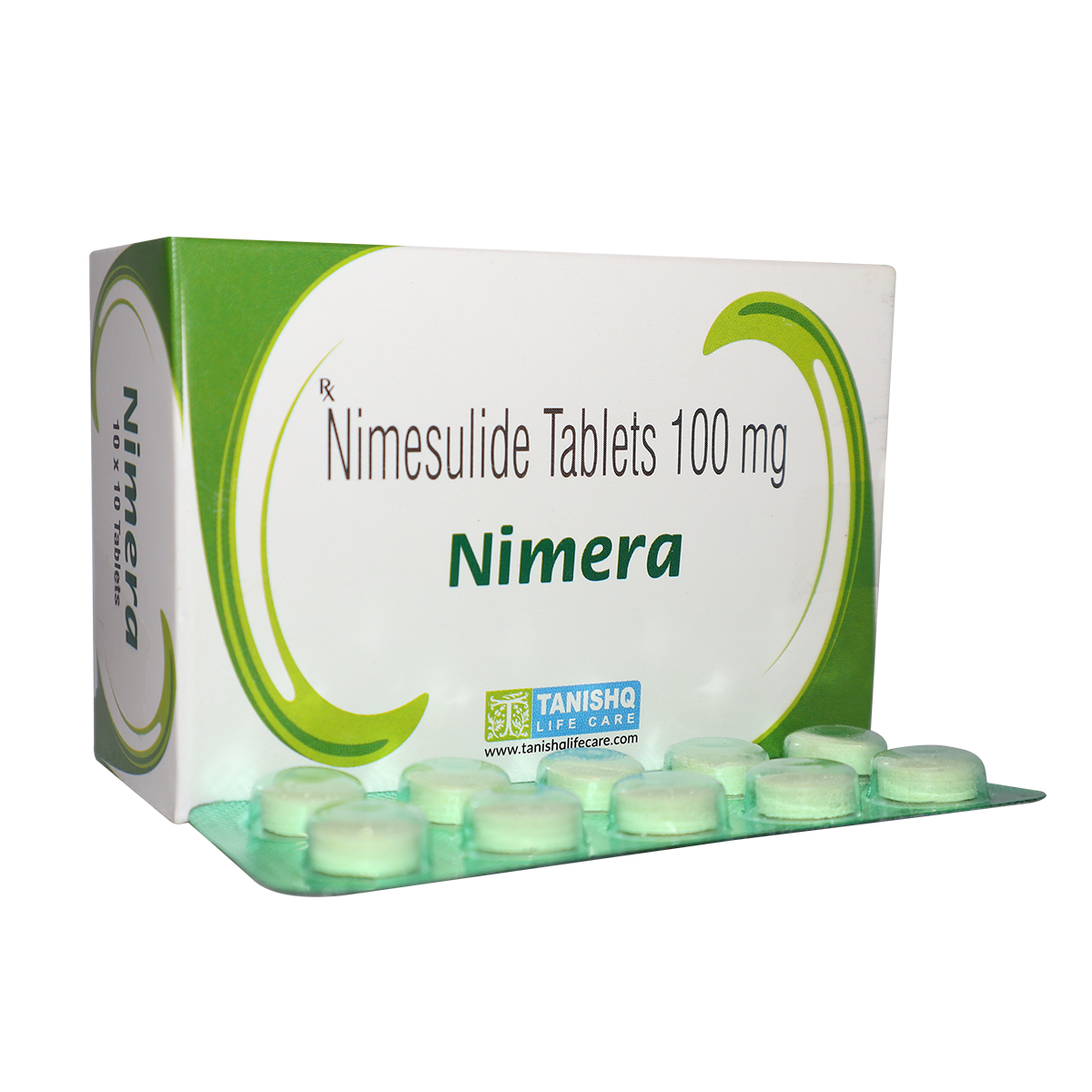
Nimera
Nimesulide is a nonsteroidal anti-inflammatory drug (NSAID) that provides analgesic (pain-relieving), antipyretic (fever-reducing), and anti-inflammatory effects. It works by inhibiting the COX-2 enzyme involved in the production of prostaglandins, substances that mediate pain, inflammation, and fever in the body.
- Recommended Usage
Indications
Nimesulide is commonly used for the relief of:
- Acute pain (e.g., toothache, headache, or musculoskeletal pain)
- Dysmenorrhea (painful menstruation)
- Osteoarthritis and rheumatoid arthritis (for inflammation and pain management)
- Fever reduction in various conditions (e.g., cold, flu, or other infections)
Dosage and Administration
Usual Dosage: 100 mg twice daily (morning and evening), after meals.
o The tablet should be taken whole with a glass of water.
o It is advisable to take Nimesulide with food or after meals to reduce the risk of gastrointestinal irritation.
Maximum Dosage: Do not exceed 200 mg per day unless prescribed by a healthcare provider.
Duration: Nimesulide is usually recommended for short-term use, typically for 5-7 days for acute pain or fever. Long-term use should be avoided due to potential risks such as liver toxicity.
Precautions
Liver Function: Nimesulide has been associated with liver toxicity. It should be used with caution in patients with liver disease or a history of liver problems. Regular monitoring of liver function is recommended during treatment.
Kidney Disease: Patients with kidney problems should use Nimesulide cautiously and may need dose adjustments.
Gastrointestinal Risk: Like other NSAIDs, Nimesulide may cause gastrointestinal irritation, ulcers, or bleeding, particularly with long-term use. It should be used with caution in individuals with a history of stomach ulcers or gastrointestinal bleeding.
Cardiovascular Risk: Nimesulide can increase the risk of cardiovascular events (e.g., heart attack or stroke) when used in high doses or for prolonged periods. Use with caution in individuals with cardiovascular disease or high blood pressure.
Pregnancy & Breastfeeding: Nimesulide is generally not recommended during pregnancy, especially in the third trimester, as it may harm the fetus. It is also advised to avoid breastfeeding while taking Nimesulide, as it may pass into breast milk.
Elderly Patients: Elderly individuals may be more susceptible to the side effects of Nimesulide, particularly gastrointestinal, renal, or liver-related issues.
Product Category
- Anti Infective
- Injectables
- Pre Filled Syringe
- Immunosuppressants
- Anti Ulcerant/ppis
- Joint Care
- Enzymes
- Heamatinic Agents
- Antioxidant Multivitamins
- Laxatives
- Anti Alergic
- Corticosteroids & Combinations
- Anti Fungal
- Medicated Soaps
- Emollients and Moisturisers
- Face Care
- Puva & Sun Protectors
- Hair Care
- Anti Acne Preparation
- Analgesics Antipyretics & Anti Inflammatory
- Anti Spasmodic & Anti Emetic
- Expectorants Antitussives & Mucolytics
- Antidiarrheals
- Cardiac Drugs
- Antipsychotics
- Anti Epileptics
- Migraine
- Anti Dyspetic
